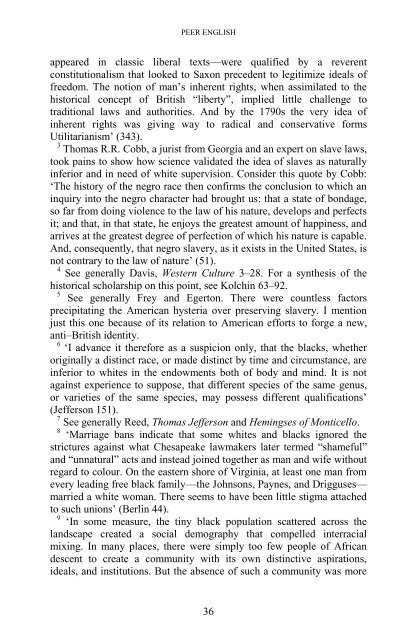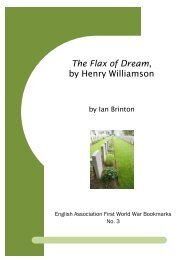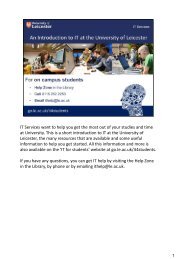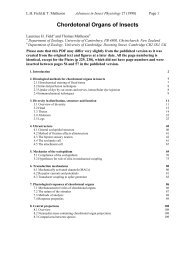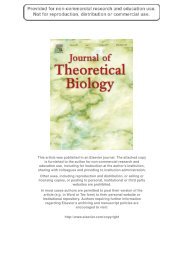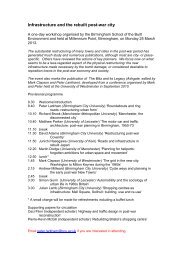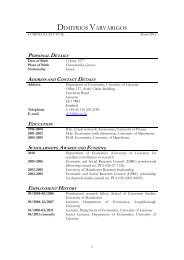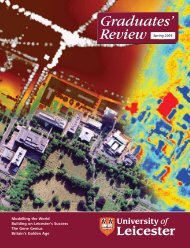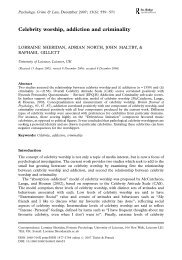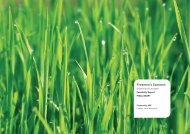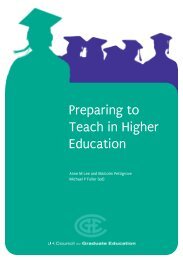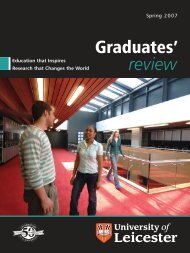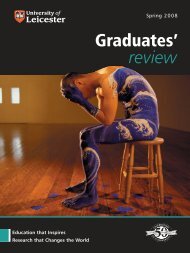From Natural Law to Natural Inferiority
From Natural Law to Natural Inferiority
From Natural Law to Natural Inferiority
You also want an ePaper? Increase the reach of your titles
YUMPU automatically turns print PDFs into web optimized ePapers that Google loves.
PEER ENGLISHappeared in classic liberal texts—were qualified by a reverentconstitutionalism that looked <strong>to</strong> Saxon precedent <strong>to</strong> legitimize ideals offreedom. The notion of man’s inherent rights, when assimilated <strong>to</strong> thehis<strong>to</strong>rical concept of British “liberty”, implied little challenge <strong>to</strong>traditional laws and authorities. And by the 1790s the very idea ofinherent rights was giving way <strong>to</strong> radical and conservative formsUtilitarianism’ (343).3 Thomas R.R. Cobb, a jurist from Georgia and an expert on slave laws,<strong>to</strong>ok pains <strong>to</strong> show how science validated the idea of slaves as naturallyinferior and in need of white supervision. Consider this quote by Cobb:‘The his<strong>to</strong>ry of the negro race then confirms the conclusion <strong>to</strong> which aninquiry in<strong>to</strong> the negro character had brought us: that a state of bondage,so far from doing violence <strong>to</strong> the law of his nature, develops and perfectsit; and that, in that state, he enjoys the greatest amount of happiness, andarrives at the greatest degree of perfection of which his nature is capable.And, consequently, that negro slavery, as it exists in the United States, isnot contrary <strong>to</strong> the law of nature’ (51).4 See generally Davis, Western Culture 3–28. For a synthesis of thehis<strong>to</strong>rical scholarship on this point, see Kolchin 63–92.5See generally Frey and Eger<strong>to</strong>n. There were countless fac<strong>to</strong>rsprecipitating the American hysteria over preserving slavery. I mentionjust this one because of its relation <strong>to</strong> American efforts <strong>to</strong> forge a new,anti–British identity.6 ‘I advance it therefore as a suspicion only, that the blacks, whetheroriginally a distinct race, or made distinct by time and circumstance, areinferior <strong>to</strong> whites in the endowments both of body and mind. It is notagainst experience <strong>to</strong> suppose, that different species of the same genus,or varieties of the same species, may possess different qualifications’(Jefferson 151).7 See generally Reed, Thomas Jefferson and Hemingses of Monticello.8 ‘Marriage bans indicate that some whites and blacks ignored thestrictures against what Chesapeake lawmakers later termed “shameful”and “unnatural” acts and instead joined <strong>to</strong>gether as man and wife withoutregard <strong>to</strong> colour. On the eastern shore of Virginia, at least one man fromevery leading free black family—the Johnsons, Paynes, and Drigguses—married a white woman. There seems <strong>to</strong> have been little stigma attached<strong>to</strong> such unions’ (Berlin 44).9 ‘In some measure, the tiny black population scattered across thelandscape created a social demography that compelled interracialmixing. In many places, there were simply <strong>to</strong>o few people of Africandescent <strong>to</strong> create a community with its own distinctive aspirations,ideals, and institutions. But the absence of such a community was more36


